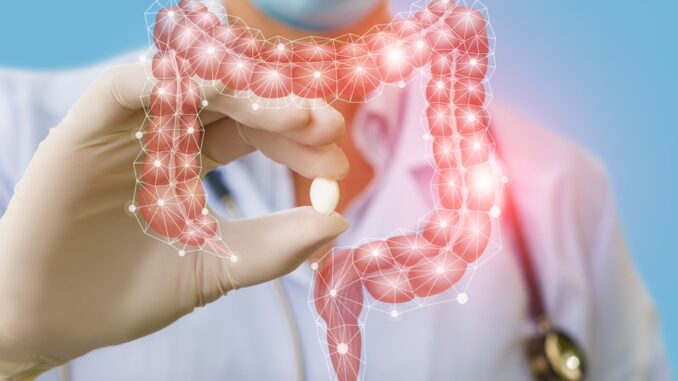
Ferring Pharmaceuticals shared an oral presentation last month detailing microbiome restoration from the Phase 3b CDI-SCOPE study among patients with recurrent C. difficile (C. diff) infection (CDI) who received REBYOTA® (fecal microbiota, live – jslm).
This research was presented at the American College of Gastroenterology’s annual meeting (ACG 2025), alongside new long-term safety data from CDI-SCOPE and a retrospective analysis exploring the impact of antibiotic washout periods on REBYOTA effectiveness. REBYOTA is the first and only single-dose fecal microbiota transplant (FMT) approved by the U.S. Food and Drug Administration (FDA) for the prevention of recurrent CDI in individuals 18 years of age and older, following antibiotic treatment for C. diff infection.
“The collective data presented at ACG continue to build compelling evidence for REBYOTA in managing recurrent CDI,”
said Raza Ahmed, MD, Senior Director of Medical Affairs, Ferring Pharmaceuticals.
“The results of these analyses are consistent with our pivotal research, further strengthening the body of evidence for REBYOTA.”
The CDI-SCOPE trial is a multicenter, single-arm, phase 3b study evaluating the safety and efficacy of REBYOTA when administered by colonoscopy to adults with recurrent CDI (rCDI). Overall, 41 participants received REBYOTA, 39 of whom completed an 8-week visit, with a treatment success rate of 95%. For the ACG presentation, investigators analyzed the microbiome composition, diversity of bacterial populations, and the Microbiome Health Index™ for post-antibiotic dysbiosis (MHI-A) in participants with stool samples provided between baseline and 6 months (n=20) and those with a baseline sample and at least 1 post-administration sample (n=18).
Compared with baseline, microbiome composition and MHI-A shifted significantly toward the REBYOTA composition among responders. Specifically, beneficial bacteria (Bacteroidia and Clostridia) increased in abundance, while disease-causing bacteria (Gammaproteobacteria and Bacilli) decreased following REBYOTA administration. Importantly, MHI-A values increased from baseline to 6 months after treatment, indicating a sustained shift toward a healthier microbiome state.
“The restorative changes we observed in our analysis suggest a potential shift from a post-antibiotic state of dysbiosis to a healthier state with the colonization of bacteria more resistant to CDI,”
said Dr. Sahil Khanna, Mayo Clinic and lead author on the study.
“Importantly, administration by colonoscopy also demonstrated a safety profile consistent with pivotal studies.”
A second abstract from the CDI-SCOPE study reported that the safety profile of REBYOTA through 6 months was consistent with results from previous trials. From week 8 through 6 months after treatment, researchers identified 36 additional treatment-emergent adverse events (TEAEs) in 15 participants (36.6%), with 1 (irritable bowel syndrome) considered treatment-related. Most TEAEs (97.2%) during this period were mild or moderate in severity, and 1 serious, potentially life-threatening TEAE (worsening abdominal pain) unrelated to REBYOTA was observed. No new safety signals were observed, and the safety profile was consistent with prior clinical trials.
Across the full trial period, 6 REBYOTA-related TEAEs occurred in 4 participants (9.8%), all of which were mild in severity and gastrointestinal in nature. Serious TEAEs occurred in 3 participants (7.3%), none of which were related to REBYOTA or its administration.
A third retrospective, multicenter analysis explored the impact of administering REBYOTA beyond the currently indicated 24- to 72-hour antibiotic washout period. Among 130 patients with rCDI, Group 1 (n=99) received REBYOTA within 24-72 hours (≤3 days) following standard-of-care antibiotic therapy while Group 2 (n=31) received treatment after 72 hours (>3 days, up to 42 days). Although the median washout period differed significantly between groups (2 days in Group 1 vs. 9 days in Group 2, p<0.0001), REBYOTA prevented recurrences despite being administered beyond the standard washout period. Recurrence was observed in 25.3% in Group 1 vs. 3.2% in Group 2, where the difference was statistically significant (p=0.008). Further analysis with a larger cohort is needed to confirm these early results.
About C. diff infection
C. diff infection is a serious and potentially deadly infection that impacts people across the globe. The C. diff bacterium causes debilitating symptoms, such as severe diarrhea, fever, stomach tenderness or pain, loss of appetite, nausea and colitis (an inflammation of the colon).1 C. diff infection can be the start of a vicious cycle of recurrence, causing a significant burden for patients and the healthcare system.2,3 It has been estimated that up to 35% of C. diff infection cases recur after initial diagnosis and people who have had a recurrence are at significantly higher risk of further infections.4,5,6,7 After the first recurrence, it has been estimated that up to 65% of patients may develop a subsequent recurrence.6,7 Antibiotics – the current standard of care for treatment of C. diff infection – treat the disease but can also be a contributing factor to the cycle of recurrence.1
About REBYOTA
REBYOTA is a pre-packaged, single-dose 150 mL microbiota suspension for rectal administration consisting of a liquid mix of up to trillions of live microbes – including Bacteroides. REBYOTA is delivered directly to the gut microbiome and is administered by a healthcare professional in one visit.
INDICATION
REBYOTA (fecal microbiota, live – jslm) is indicated for the prevention of recurrence of Clostridioides difficile (C. diff) infection in individuals 18 years of age and older, following antibiotic treatment for recurrent C. diff infection.
